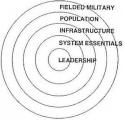Operations targeted against senior enemy leaders have long been viewed as a potential means of shaping the policy and behavior of enemy states. As a result, the United States has launched a variety of overt and covert operations in efforts to attack enemy leaders directly, facilitate their overthrow by coup or rebellion, or secure their ouster through external invasion. This book examines a number of leadership attacks from World War II to the present to offer insights into the comparative efficacy of various forms of leadership attacks, their potential coercive and deterrent value, and the possible unintended consequences of their ill-considered use. The book concludes that direct attacks, coups, and rebellions have met with only limited success and, even when successful, have sometimes yielded counterproductive results. Moreover, neither direct attacks nor coups have been of significant coercive or deterrent value, although rebellions have at times provided useful negotiating leverage.
By contrast, external invasions have proved to be more efficacious both in shaping the targeted countries’ policy and behavior and in exerting coercive effects. The book concludes by outlining the likely conditions under which future leadership attacks are likely to be sanctioned and by delineating the prerequisites of effective use of air power in such contexts.











Bookmarks